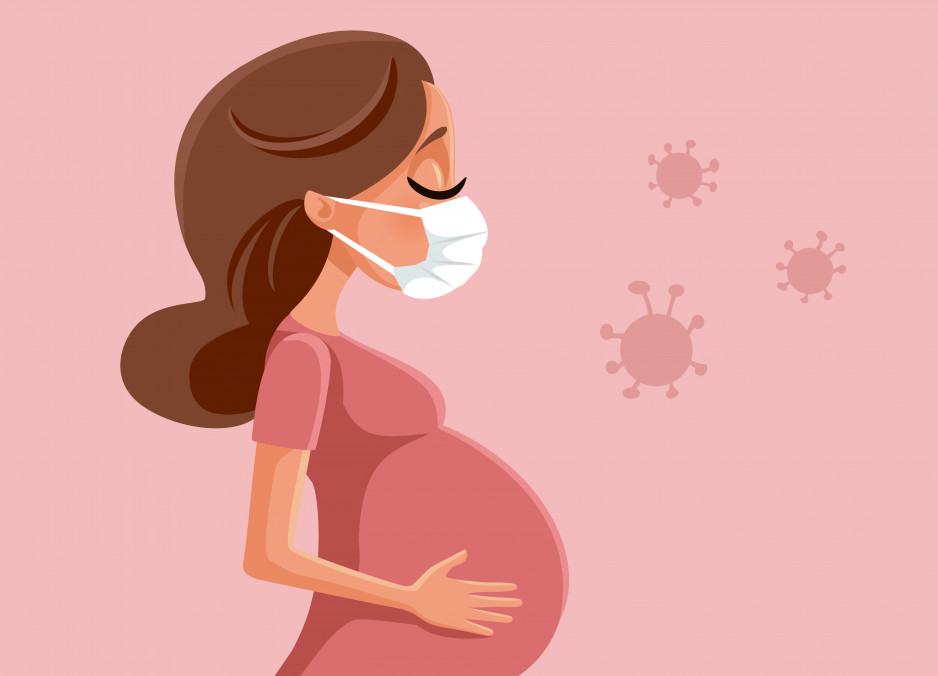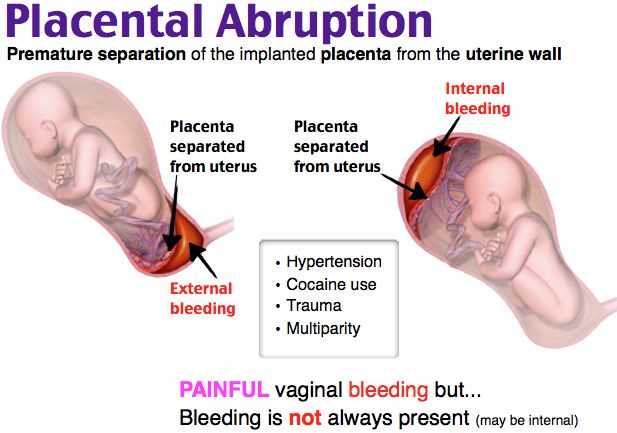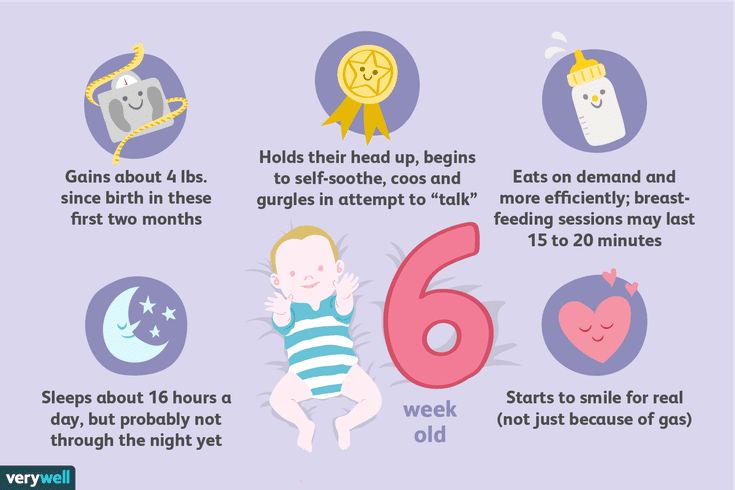Pregnancy and scared
Common fears and anxiety during pregnancy
It’s normal to experience some anxiety during pregnancy.
|
Pregnancy isn’t necessarily an easy and happy time for all women. The expectant mother undergoes significant physical transformations that affect her life in many ways. It’s only normal to experience some anxiety during pregnancy.
A stressful time
Pregnancy is a time of change and upheaval that can lead to many questions and concerns. The many hormonal changes also sometimes increase emotional difficulties, causing some women to become more anxious.
Furthermore, even when a pregnancy is desired and planned, the expectant mother is likely to worry about the big responsibilities and changes that lie ahead. During pregnancy, many women reflect on their own childhood and their relationship with their parents, especially their mother. These thoughts can be a source of anxiety. Pregnancy is therefore an opportunity to come to terms with the past, but also to grow and prepare for motherhood.
According to several studies, a high proportion of first-time pregnant women report experiencing some fear during pregnancy. In fact, health concerns are much more common among pregnant women than in the general population. Sources of concern vary depending on the trimester. For instance, in the first trimester, the fear of losing the baby is more common, whereas in the third trimester, the fear of childbirth increases.
Although some women believe that their fears are not justified, others believe that they have reason to worry. Some go so far as to say that their fears are sometimes positive. A certain level of anxiety can be beneficial, as it encourages the expectant mother to avoid behaviours that put the baby at risk. Anxiety also signals an increased sense of responsibility, which can help the expectant mother plan for the child’s arrival.
Some go so far as to say that their fears are sometimes positive. A certain level of anxiety can be beneficial, as it encourages the expectant mother to avoid behaviours that put the baby at risk. Anxiety also signals an increased sense of responsibility, which can help the expectant mother plan for the child’s arrival.
Ultimately, the goal is not to completely eliminate anxiety during pregnancy, but to learn how to manage it to avoid any negative effects and prevent the development of anxiety disorders.
Many things can cause anxiety in expectant mothers. Here are some of the most common.
Fear of losing the baby or that the baby won’t be healthy
This is one of the most common fears. Some women worry that the pregnancy isn’t going well or that they’ve done something that could harm their baby’s health. If the expectant mother has had a miscarriage, given birth prematurely, or experienced fertility problems, she may also be worried that her body won’t be able to carry the pregnancy to term. In addition, waiting for the results of medical tests performed during pregnancy can make some expectant mothers more nervous.
In addition, waiting for the results of medical tests performed during pregnancy can make some expectant mothers more nervous.
Figuring out the source of your fears will help reduce anxiety. It’s also important to keep in mind that the vast majority of pregnancies end with the birth of a healthy baby. To reduce anxiety, expectant mothers can try relaxation exercises or do activities they enjoy to relieve stress. It’s important to focus your energy on what you can control and let go of the rest.
Fear of not getting your pre-baby body back
Some women may have concerns about their physical appearance. They worry that they won’t be attractive anymore, that they’ll gain too much weight, or that they’ll lose their pre-pregnancy figure. Pregnancy is primarily a physical experience, and the fear of losing control over all these rapid body changes is very unsettling for many women. It’s important to be kind to yourself and accept that your body will need some time to recover. Healthy eating habits and physical activity can help.
Healthy eating habits and physical activity can help.
All pregnant women get a little anxious as their due date approaches. About 20 percent of women admit that they’re afraid of giving birth, and 6 to 10 percent have a childbirth phobia. During a first pregnancy, it’s often the fear of the unknown and of losing control that makes women anxious. Some women would even prefer to have a caesarean section because they feel it would give them more control over the birth. For a second pregnancy, fear sometimes stems from a bad experience the first time they gave birth. However, even if everything went well the first time, there are still some elements of the unknown during a second or third delivery that can make some women anxious.
In general, women who fear childbirth are afraid of the labour pain and worry they won’t be able to handle it adequately. They also fear losing control of their emotions. Fear can also be amplified by negative stories of childbirth they’ve heard from friends or family members, or by dramatic representations seen on television.
To better manage the fear of giving birth, it can be beneficial to learn about the birth process and get answers to your questions by talking to your doctor or midwife. It’s a good opportunity to talk about your fears with someone you trust. Prenatal classes are also a good way to get informed. Doing visualization exercises and talking with mothers who’ve had a positive experience can also help reduce the fear of giving birth. Lastly, women who fear childbirth should keep in mind that there are no right or wrong ways to have a child; no matter what, they’ll do their best.
Fear of not being a good motherMany parents worry that they won’t be able to care for their child or love them enough. They can, however, take comfort in knowing that the parent-child relationship will gradually develop as they spend time with their little one. In addition, the mother has already developed a special bond with her baby during the nine months of pregnancy.
Some expectant mothers may be afraid of becoming overwhelmed by their new role as a mother. It’s normal to feel this way from time to time. If you’re having these concerns, consider having support during the first few weeks with your baby. Learning about breastfeeding and infant care during your pregnancy can also help you feel more confident when the baby arrives.
Pregnancy in times of crisis
In times of crisis, such as during the COVID19 pandemic, pregnancy-related anxiety may increase. In emergency situations, people tend to experience feelings of threat, uncertainty, and lack of control—all of which lead to stress.
You can, however, learn to cope with these fears. To learn more about stress management in times of crisis, read COVID-19: Managing your stress level while you are pregnant.
When should you speak with an expert?
While it’s normal to feel some anxiety during pregnancy, it’s important to seek help if your anxiety is causing you distress or preventing you from functioning. You may have an anxiety disorder. Anxiety disorders affect 5 to 15 percent of pregnant women.
You may have an anxiety disorder. Anxiety disorders affect 5 to 15 percent of pregnant women.
Anxiety during pregnancy has been associated with depression symptoms after childbirth, which is why it’s so important to seek help. In fact, anxiety symptoms often coexist with depression symptoms. Research has shown that about 18 percent of pregnant women experience mild depression during pregnancy, and 7 to 12 percent of women may experience moderate to severe depression. Don’t wait until you’re in severe distress before seeing a doctor. Early intervention makes it easier to solve the problem quickly and reduce the risk of complications.
If you experience any of the following symptoms, discuss them with your doctor:
- A feeling of loss of control and panic
- Unpredictable, spontaneous crying spells
- Sadness, melancholy, exhausting anger, or general despair and irritability
- Sleep disturbances
- Difficulty staying focused and restlessness
- A feeling of inadequacy as a mother-to-be and a tendency to put yourself down
- Excessive and intrusive worries about the baby’s health or your own health
Anxiety medication: Is it safe to take during pregnancy? |
- It’s normal to feel some anxiety during pregnancy.
- The most common fears relate to childbirth, the baby’s health, and the ability to take good care of the baby.
- If your anxiety is causing you significant distress or preventing you from functioning, see a doctor.
Scientific review: Nicole Reeves, psychologist, CHUM Birthing Centre |
Photo: iStock. com/BakiBG
com/BakiBG
SourcesPlease note: Hyperlinks to other websites are not updated regularly, and some may have changed since publication. If a link is no longer valid, use search engines to find the information you’re looking for.
|
Partager
À lire aussi
Pregnant And Scared – 10 Things You Shouldn’t Worry About While Pregnant
Skip to content- View Larger Image
Being pregnant and scared is normal – most expecting mothers have fears and doubts about this significant life change. Can I continue working out? Am I eating enough? Will stress affect my baby’s health? Above all, there is the fear of miscarriage. If these fears resonate with you and you are constantly plagued by negative, worrisome thoughts, this article is perfect for you. Below, we have compiled the ten most common things pregnant women worry about that are not a big deal.
Below, we have compiled the ten most common things pregnant women worry about that are not a big deal.
Get ready to leave your thoughts of pregnancy complications behind. By the end of this article, you will feel more confident, stress-free, and ready to tackle the challenges of motherhood.
Keep on scrolling for the rest.
Pregnancy can be one of the most beautiful and life-altering times of a woman’s life. However, for some ladies, it can cause tremendous anxiety and fear. While it is normal to experience some degree of worry and anticipation during pregnancy, some soon-to-be mothers may deal with overwhelming fears that can have debilitating side effects. Often, a pregnancy concern can stem from the mother’s imagination, and it is not based on real-life facts.
That said, whether you are pregnant or scared, or worry-free, it is essential to consult a trained professional at a reliable clinic. If you are looking for the best healthcare providers in the area, check out the highest-rated Obstetrician at Palm Beach, FL.
To compile the list below, we have looked and asked around for the top pregnancy concern. Here are the results.
The Fear of a MiscarriageWithout a doubt, the number one pregnancy concern that women worry about is losing the baby before birth. The good news is that, on average, less than 20 percent of pregnancies end in a miscarriage. According to the experts, most women lose their babies within the initial few weeks of pregnancy.
That said, the fear of a miscarriage is real, and losing your baby is possible. That is why it is crucial to stay on track with your regular OB-GYN appointments. Also, choosing a reliable healthcare professional at a safe and clean clinic will make a massive difference in your pregnancy experience. Here is some more good news: After the doctor notices a heartbeat (typically around the six to eight-week mark), the miscarriage risk drops to approximately five percent. Do you still have a fear of miscarriage? If you are a smoker, make sure to cut out tobacco use. Moreover, stop drinking alcohol and consume less caffeine (around 200mg or less). Better yet, do not drink coffee or consume caffeine-rich foods during your pregnancy.
Moreover, stop drinking alcohol and consume less caffeine (around 200mg or less). Better yet, do not drink coffee or consume caffeine-rich foods during your pregnancy.
Another common pregnancy concern is that you will not be an adequate mother for your future child. This fear may typically stem from previous experiences or childhood trauma. Maybe you are already a mother, and you made mistakes parenting your older children. Or perhaps you were raised in a toxic household, and your pregnancy concern is that you will be just like your parents or caretakers. The truth is that none of us are perfect, and there is no course on how to be the ideal mother. Just give your best and provide your child with love and support.
The Fear of Not Feeding the Baby Enough Due to Morning SicknessYou are experiencing frequent morning sickness, and now you are pregnant and scared. You may be asking yourself: “is my baby able to absorb the nutrients from the food?”. Worry not. According to the experts, babies do an excellent job at absorbing the nutrients from the foods you consume. That said, make sure to take prenatal vitamins recommended by your doctor and consume smaller, more frequent meals.
Worry not. According to the experts, babies do an excellent job at absorbing the nutrients from the foods you consume. That said, make sure to take prenatal vitamins recommended by your doctor and consume smaller, more frequent meals.
Pregnancy complications such as preeclampsia, severe high blood pressure, and gestational diabetes cause tremendous fear for upcoming mothers. The truth is that the risk of developing complications such as preeclampsia is only around five to eight percent! If you are pregnant and worried, keep going to your prenatal checkups for regular health updates.
In the case of gestational diabetes, you will want to implement dietary changes such as limiting your starchy carbohydrate intake. Talk to your doctor for the details.
The Fear of Not Giving the Baby Proper NutritionOne of the most common first trimester worries is that you are not consuming the “right foods” to ensure the proper growth of your baby. Although there are certain foods and drinks you should avoid or minimize during pregnancy, there is no reason to overthink your nutritional choices. Always make sure to talk to your doctor about your eating regime.
Although there are certain foods and drinks you should avoid or minimize during pregnancy, there is no reason to overthink your nutritional choices. Always make sure to talk to your doctor about your eating regime.
That said, some women may also have first trimester worries due to risks linked to consuming unpasteurized dairy or coloring hair with certain chemicals. Your healthcare provider will guide you on what is safe and unsafe for your pregnancy.
The Fear of Your Stress Harming the BabyThe fear of miscarriage, congenital disabilities, nutritional deficiencies, lousy sex – all of these worries can cause stress to your body. Besides that, strenuous exercise and everyday stressors such as slow traffic and missed deadlines at work can make you feel anxious, stressed out, and overwhelmed.
Look on the bright side. According to most findings, intermittent stress or stress your body gets used to has minimal impact on your unborn child. On the other hand, severe or acute stress may increase the risk of premature birth. Overall, if you tend to get very stressed, find ways to relax. For instance, go to sleep early, talk to a friend, or go for a light walk.
Overall, if you tend to get very stressed, find ways to relax. For instance, go to sleep early, talk to a friend, or go for a light walk.
As your body is slowly changing, you may also experience first trimester worries related to sex. You may start feeling nauseous, bloated, and constipated, all of which can wreak havoc on your self-esteem and performance in bed. Talk to your partner about your concerns and be transparent about your feelings. That said, sex during pregnancy can be one of the most amazing things you can experience. The sexual activity will not affect the baby as long as you are not dealing with complications such as placenta issues.
The Fear of Birth DefectsThere is always a risk of pregnancy complications, such as congenital disabilities. However, the risk of your unborn child having disabilities is a mere four percent! This number includes severe and minor defects such as toenail problems.
Make sure to visit your doctor regularly. A screening test can help detect any pregnancy complications.
A screening test can help detect any pregnancy complications.
Your healthcare provider will recommend taking a prenatal supplement with folic acid before getting pregnant.
The Fear of Premature LaborUnfortunately, more and more women are giving birth prematurely. On the positive side, over 70 percent of premature births happen between weeks 34 and 36 – the risk of developmental issues and other complications is much lower at this time.
Also, there are ways to reduce premature births. For example, quit smoking and alcohol use, go to your prenatal checkups, and consume prenatal supplements daily.
The Fear of Painful LaborSome women will describe going into labor as the most challenging thing a mother will do, while others claim it is a “piece of cake.” Firstly, realize that countless women have given birth before you, and it is a natural thing. Thanks to modern technology, there are ways to alleviate pain and make labor less complicated. Consult your doctor on pain management methods, go to childbirth classes, and talk to your friends who have given birth before.
Consult your doctor on pain management methods, go to childbirth classes, and talk to your friends who have given birth before.
Are You Ready to Become the Most Confident Mom Ever?
Motherhood can be a scary and overwhelming transition period for every woman. We are here to help you. Book an appointment with us today to receive professional help.
Page load link Go to TopFears during pregnancy | Nutriclub
Most women experience fear and anxiety during pregnancy. What most often worries expectant mothers and how to relieve excessive anxiety - we analyze the points
During pregnancy, serious changes occur in the body of the expectant mother. The feeling of anxiety and fear during this period is experienced by 90% of women - this is a natural psychological reaction to changes in hormonal levels and adaptation of the body to new conditions.
Is there something wrong with my child?
It is important to know that nature has done everything to protect your baby in the womb. And modern medicine is able to detect and prevent many diseases and deviations. Do your best - see your doctor regularly and stay active and healthy - and you'll be fine. Timely diagnosis will help to identify diseases and infections at the initial stage that can threaten the baby, and cure them in a timely manner. The expectant mother is tested, she is given an ultrasound scan and screenings to detect fetal pathologies. All this will help you relieve anxiety and fear for the health of the baby. In order to stop worrying, it is worth thinking about the positive experience of your acquaintances and girlfriends, remember that most children are born healthy and that many developmental disorders are successfully corrected after birth. Read less horror forums, attend yoga and pregnancy fitness classes, and walk more.
And modern medicine is able to detect and prevent many diseases and deviations. Do your best - see your doctor regularly and stay active and healthy - and you'll be fine. Timely diagnosis will help to identify diseases and infections at the initial stage that can threaten the baby, and cure them in a timely manner. The expectant mother is tested, she is given an ultrasound scan and screenings to detect fetal pathologies. All this will help you relieve anxiety and fear for the health of the baby. In order to stop worrying, it is worth thinking about the positive experience of your acquaintances and girlfriends, remember that most children are born healthy and that many developmental disorders are successfully corrected after birth. Read less horror forums, attend yoga and pregnancy fitness classes, and walk more.
I am afraid of childbirth
Fear of childbirth is a natural fear of physical pain. In order to get rid of it, you can be like childbirth preparation courses, where you will be taught how to breathe and push properly. Such courses are also good because you will see how many women are in the same position as you. You can discuss your concerns with the obstetrician-gynecologist in advance, decide how you will give birth: alone or with a partner, which type of anesthesia is preferable for you, if such a need arises. Remember that today doctors have a lot of opportunities to make the process of childbirth painless. In addition, you can prepare your body for childbirth by walking more, moving more and attending classes for pregnant women.
Such courses are also good because you will see how many women are in the same position as you. You can discuss your concerns with the obstetrician-gynecologist in advance, decide how you will give birth: alone or with a partner, which type of anesthesia is preferable for you, if such a need arises. Remember that today doctors have a lot of opportunities to make the process of childbirth painless. In addition, you can prepare your body for childbirth by walking more, moving more and attending classes for pregnant women.
What if I'm a bad mom?
What if I take care of the child incorrectly and this will harm him? I will not have time to do everything that is necessary, because the child requires increased attention? I will not be able to properly feed and educate him? These are common fears that almost all women who give birth for the first time visit. It is important to know that there is nothing more natural than motherhood. You will cope with any number of children that will be born thanks to you. As a rule, as soon as the baby is born, everything comes by itself, and no one but you will understand your child better. And all your fears will dissipate in the first days of the baby's life. Not a single woman has a ready-made program for care and upbringing - instincts and daily practice help.
As a rule, as soon as the baby is born, everything comes by itself, and no one but you will understand your child better. And all your fears will dissipate in the first days of the baby's life. Not a single woman has a ready-made program for care and upbringing - instincts and daily practice help.
What if I can't breastfeed?
Only 5% of women cannot breastfeed for medical or psychological reasons. As a rule, these are such serious diseases as kidney pathology, heart defects, blood diseases, tumors, HIV infections, etc. There are acute psycho-emotional disorders that also prevent breastfeeding. If you do not have such diseases, then there is nothing to worry about. After childbirth, milk appears in all women without exception, and feeding on demand will provide the right amount of milk for the baby. Today, in many maternity hospitals, you can consult a nurse or even a breastfeeding specialist who will show you how to properly latch on to your baby. If you are concerned about cracks, then there are various products that are applied to the nipples before and after feeding, a breastfeeding specialist can also talk about this. And of course, a positive attitude is needed for successful feeding: remember that with mother's breast milk, the child receives absolutely all the trace elements he needs.
And of course, a positive attitude is needed for successful feeding: remember that with mother's breast milk, the child receives absolutely all the trace elements he needs.
Will my life change?
Life will change, but definitely for the better. If before pregnancy your days were full of interesting people and things, then this will not disappear anywhere. Rather, on the contrary - after the birth of a child, new ideas and interests will appear. As many women note, a decree is a chance to learn new skills and abilities, and possibly change the field of activity if you have been thinking about it for a long time. The fact is that caring for a child can be combined with other activities, the main thing is to set yourself up correctly. Today there are great opportunities for distance learning and professional development. These are books, online courses, webinars, remote work.
There is a common myth that a child chains his mother to the house. It all depends on the desire of the woman: with the baby it is quite possible to go on a visit, to meet with friends or colleagues, to travel. Also, most babies sleep very soundly and won't be distracted if you invite guests.
Also, most babies sleep very soundly and won't be distracted if you invite guests.
The main way to get rid of fears during pregnancy is to fill your life with events and people that make you happy. The condition of the mother is passed on to her child, and to please and take care of yourself is the most important thing you can do for the baby during this period.
When using any materials from the site nutriclub.ru, a link to the site is required.
© Nutriclub, 2020
You will also be interested
- Nutriclub - healthy nutrition and child development
- Pregnancy
- Pregnancy: lifestyle
- Fears during pregnancy | Nutriclub
Fears of pregnant women are overcome - nine useful tips :: Clinician
25 10.2017
-
Unfounded fears
-
Unnecessary alarms
-
Anxiety unsupported by arguments
-
Natural doubts
The time of pregnancy is nine months of happy expectation of a miracle, but sometimes the same number of months of fears and worries about the unborn child. In order to find joy and avoid unnecessary worries, to enjoy the gestation period, the necessary task is to get rid of the complexes, having determined the cause of the anxieties, to “quench” them. Mothers, husbands, relatives, of course, will help you (psychologically and physically), but the main mission to overcome your own anxieties lies with the pregnant woman.
In order to find joy and avoid unnecessary worries, to enjoy the gestation period, the necessary task is to get rid of the complexes, having determined the cause of the anxieties, to “quench” them. Mothers, husbands, relatives, of course, will help you (psychologically and physically), but the main mission to overcome your own anxieties lies with the pregnant woman.
The cause of anxiety is most often the physiological restructuring of the body, which leads to overwork, a weakened physical condition. This means that the expectant mother from the very beginning is predisposed to anxiety precisely in terms of physiological indicators. But understanding this phenomenon does not make it easier. The attending physician prescribes vitamins, trace elements, and in some cases hormones. It seems to be competent and according to plan, but ... it's still scary!
But what are these very fears and how to overcome them? How many pregnant women, so many fears. Not all have a logical background, some are based on myths and superstitions, and some are based on elementary ignorance.
Not all have a logical background, some are based on myths and superstitions, and some are based on elementary ignorance.
Unfounded fears
A woman does not always plan pregnancy while leading a normal life. And when she finds out about an accidental pregnancy, she begins to count with horror the number of glasses of wine drunk, cigarettes smoked, what harmful food she ate during conception. Of course, the correctness of the recommendations indicating the need for timely planning of pregnancy sounds reasonable. But if everything has already happened, a decision has been made to give birth, then it is important to clearly understand that the wisest thing is to bring your psychological state into harmony and create favorable conditions for the development of the fetus.
Fear of miscarriage is an understandable concern. To identify the problem as early as possible, take tests every other day. The best arguments for well-being in this matter are indicators and numbers.
Unnecessary worries
To drink coffee or not to drink - fans of aromatic grain drink exhaust themselves with this question, who cannot live a day without this drink. But every morning to tremble at this thought is definitely harmful to the unborn child. Let's look for an alternative. Is it better to spend the whole day at work sluggish and sleepy than to still dare to drink a cup of coffee with milk to cheer up?
Recent scientific studies have shown that a cup of coffee a day does not harm the child. Pregnant women are allowed to drink, but it is recommended to use it less often, in addition, use sparing options: instant coffee or no caffeine at all.
Taking medication or suffering pain (discomfort)? Pregnant women are usually extremely distrustful when even doctors prescribe pills to them. Even after the time spent at the consultation with a specialist, some “pregnant women” discuss the medicines prescribed by the doctor on women's forums for greater reliability. In order not to panic and not look on the Internet for advice from pregnant alarmists whose competence you are not sure, it is wiser to find a doctor who you can trust 100%! The field of gynecology in our clinic is one of the most developed and intensive areas of work.
In order not to panic and not look on the Internet for advice from pregnant alarmists whose competence you are not sure, it is wiser to find a doctor who you can trust 100%! The field of gynecology in our clinic is one of the most developed and intensive areas of work.
Anxiety unsupported by arguments
Does it seem to you that your belly is growing slowly or, conversely, is it too big? This is not a serious cause for concern. The main thing is that the ultrasound confirmed that the fetus develops according to the deadline. Also, pregnant women worry that they are gaining weight rapidly or are malnourished. Eat a balanced diet and get enough (again, with the permission of your doctor) to move, then the weight will be within the normal range.
When the baby pushes hard, it is scary at first, and if the pushes are weak, perhaps even more scary. Indeed, both may indicate hypoxia. Share your concerns with your doctor, a toned uterus is a solvable problem. Just in case, study the so-called "method 10", based on the calculation of the fetal heart rate. So you will participate in the process not passively, but meaningfully. By the way, it is in your power to actively help the cub: walk daily in the fresh air, sign up for an oxygen cocktail course. Most likely, this is how the child simply shows temperament. But if the reason is more complicated, remember that medicine can cope with such problems. Hypoxia (if it is not chronic) is amenable to medical adjustment, as a result of which the tension of the walls of the uterus decreases, and blood circulation improves.
Just in case, study the so-called "method 10", based on the calculation of the fetal heart rate. So you will participate in the process not passively, but meaningfully. By the way, it is in your power to actively help the cub: walk daily in the fresh air, sign up for an oxygen cocktail course. Most likely, this is how the child simply shows temperament. But if the reason is more complicated, remember that medicine can cope with such problems. Hypoxia (if it is not chronic) is amenable to medical adjustment, as a result of which the tension of the walls of the uterus decreases, and blood circulation improves.
Childbirth is delayed, and this is fraught with the fact that a woman is daily absorbed in listening to herself and looking for harbingers in fear of missing the start of the long-awaited process. On the one hand, vigilance does not seem to interfere, but one thing is clear - it is impossible to miss childbirth, there is no turning back. Perhaps the day of birth is simply incorrectly determined, because pregnant women do not always know the day of conception exactly.
Natural doubts
Are you afraid of natural childbirth, scary and surgical intervention? Remember that most panic plans (not related to pregnancy) are implemented in a completely different way than your imagination draws, so fantasizing, winding yourself up is not a good idea. Even if the child is born as a result of a caesarean section, this sometimes happens. The main thing is that the birth is safe for the baby and the mother. To give confidence in this matter, it is useful to attend childbirth preparation groups with your husband.
The fear of not being able to cope with a new role is familiar to everyone who has “passed through” pregnancy. Long before the birth of a child, a woman begins to "try on" motherly cares. And a common misconception here is to make demands on yourself based on the image of your own mother. After all, you are unique, you have your own ideas about care and upbringing, dreams and dreams. Anxiety is unproductive, they take away strength, depress energy, instead read a book about the development of the baby.
 According to the Public Health Agency of Canada, there are types of anxiety medication that have little or no effect on the fetus starting in the second trimester. Keep in mind that not treating anxiety during pregnancy can also have negative consequences for both the mother and baby. Talk to your prenatal care provider to determine what’s best for your situation.
According to the Public Health Agency of Canada, there are types of anxiety medication that have little or no effect on the fetus starting in the second trimester. Keep in mind that not treating anxiety during pregnancy can also have negative consequences for both the mother and baby. Talk to your prenatal care provider to determine what’s best for your situation. “Pregnancy: The third month.” 2009. www.aboutkidshealth.ca
“Pregnancy: The third month.” 2009. www.aboutkidshealth.ca 34, no. 4. 2014. pp. 12–21.
34, no. 4. 2014. pp. 12–21.
 pp. 177–182.
pp. 177–182.
 ” Midwifery, vol. 31, no. 6. 2015. pp. 563–573.
” Midwifery, vol. 31, no. 6. 2015. pp. 563–573.












